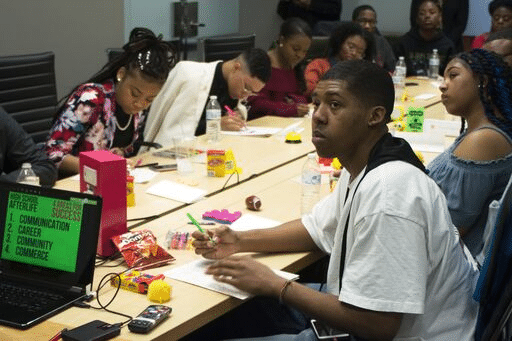 New legislation is a first step in meeting the growing demand for more safe and supportive homes for children in foster care.
New legislation is a first step in meeting the growing demand for more safe and supportive homes for children in foster care.
September 4, 2020
By Kim Eckhart, KIDS COUNT Project Manager
All children deserve a safe and supportive home. That’s why the Children’s Defense Fund-Ohio is encouraged by new legislation aimed to address the shortage of foster homes available to children throughout Ohio. On September 2nd, Ohio passed House Bill (HB) 8 to provide more flexibility in training requirements, including allowing some training to be conducted online, to become a licensed foster caregiver.
Meeting the Growing Demand. Recruiting and efficiently licensing new caregivers will help meet the critical need in Ohio for safe and supportive homes for children and teenagers who are not able to live with their biological families. In 2018, over 26,000 children were placed out of home and 12% of those were in group or residential care. The need for caregivers trained to meet the emotional and behavioral needs of children who have experienced trauma has only increased. This critical need for more trained caregivers was clearly demonstrated prior to 2020, but markedly so this year during the pandemic, with alarming reports of children living in children’s services offices.
Easing the administrative burdens and methods of training will allow more people to become licensed caregivers, providing more children the opportunity to be a part of a supportive home rather than a group living facility. If HB 8 is a step in a more comprehensive plan, it offers hope. At the same time, we must ensure this flexibility does not reduce the quality and scope of training that foster caregivers receive.
Training for foster caregivers gives them tools to be effective. Part of being a supportive caregiver includes knowing how to navigate the resources provided by the educational and health care system so that children can flourish. This is especially important as teenagers learn independence and prepare to live on their own. Advocates in Ohio have fought hard to create programs that benefit youth during this transition: namely housing supports and educational vouchers. But these programs only benefit youth if they know about them. Foster caregivers must be trained in the application guidelines for these programs.
A comprehensive vision would also allow caregivers to carry their license with them across counties. Because Ohio is a county-administered system, caregivers are licensed in a single county. If they move or decide to host a child from another county, they must begin the licensure process all over again. Making licenses portable adds another layer of flexibility and widens the pool of more safe and supportive homes.
Leverage youth voice and experience to improve training effectiveness. The change created by HB 8 must be accompanied by a vision from the Ohio Department of Job and Family Services for comprehensive, standardized, and accessible training. This vision should be informed by current and former foster youth, whose lived experience is the most valuable expertise.
HB 8 is an excellent opportunity to rethink training to be both flexible and effective across the state. The bottom line is that training should equip caregivers to be supportive and effective in their role while also removing unnecessary barriers to licensure and portability of licensure across counties. These changes put the needs of children first by prioritizing high quality training, supportive care, and supporting increased availability of foster care providers.

